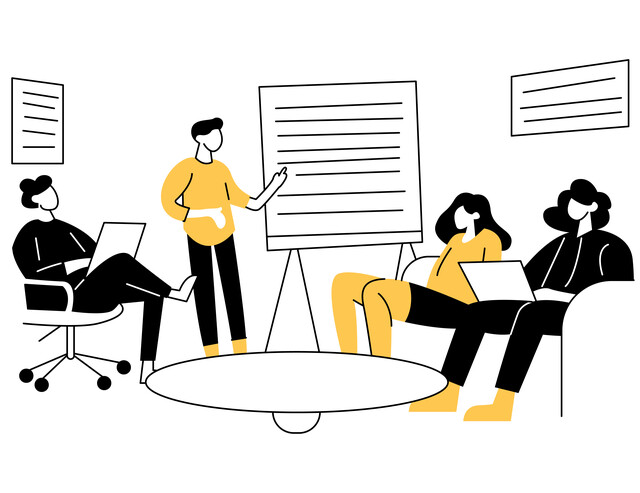If an interviewer reacts negatively to you before you even open your mouth, there is little you can do for yourself at that point. If you feel your interviewer doesn't trust you, just be as honest as possible. Don't lie to try to make yourself appear better, because this is usually transparent, especially if someone already mistrusts you.
There are not only positive and negative signals you give off with your body, but you can indicate a multitude of things with something as simple as a quirk of your eyebrow, depending on the position of the rest of your body. You can indicate aggression, attentiveness, boredom, closure, deception, defensiveness, domination, emotional, judgmental, powerful, submissive, or romantic intentions with just the use of your body. Of course, giving off romantic intentions at a job interview can be a little troublesome, so it's wise to do some reading and look into the way you behave naturally, to make sure you don't give a wrong impression.
Facial Signals � Aggression can be communicated in the face with little to no doubt of the emotion felt. Disapproving frowns, pursed lips, sneers, and even snarls are some of the tale-tell signs of aggression.
Attack Signals � When someone is about to strike, they tend to clench their fists or lowering or spreading of their body for stability. They are also liable to be red in the face or perspiring heavily.
Attentiveness is a very powerful thing to communicate. Not only is attention flattering, but it results in a reciprocal attention. The first sign of attentiveness is listening. You can listen on different levels of intensity, but attentive listening is deep and interested listening.
Body movement is often an indicator of distracting thoughts. When an interviewee remains completely still while an interviewer is talking, it indicates that you are forgetting everything except your interviewer, including internal thoughts and reflections.
There are a number of ways in which potential employers check if you are listening, even if they don't fully realize it themselves:
-
Furrowed brows
-
Intense gaze
-
Leaning forward
-
Slow nodding
-
Open body
-
Interest noises (i.e. - yes, uh huh, mm, go on)
-
Verbal reflection
-
PatienceBoredom
A person who is bored will be distracted easily by shiny objects, insects, other people, nearby TVs, or anything in the immediate area.
Reasons for boredom
-
Lack of interest
-
Readiness
-
Impatience
-
Distractedness
-
Pessimistic attitudeDeception
1. Excessive blinking can oftentimes be an indicator of a liar. However, frequent blinking can also indicate a higher level of intelligence than normal, so you can't be completely sure.
2. Pupil dilation � large pupils can mean you are lying, or it could mean you are paying close attention to your interviewer. Just be careful not to use too many tendencies from the "deception" category and you should be fine.
3. Inconsistency of body language � This is a big giveaway. If someone's voice sounds confident, and their eye contact is strong, but they have jittery hands or feet, then there is a strong chance that this person is lying. Your interviewer may not notice, but then again, s/he may notice immediately.
4. Hand shrug � Upward gestures of the palms that indicate you are confused or unsure. This type of gesture has been linked with lying, but no one is completely sure.
5. Self touches � touching of one's own face, hands, or any other part of the body can indicate dishonesty.
6. Voice changes pitch � A voice that cracks or changes pitch mid-sentence can seem very odd and/or suspicious. If your voice tends to change when you are nervous, try practicing speaking out loud as if you were in your interview to get more comfortable with speaking while nervous.
Twitches around the mouth and eyes are also indicators of deception. A person may also attempt to remain very still so that they do not indicate their true feelings.
Your body language is the essence of who you are. It shows your personality to other people, your mannerisms, your mood, and your tendencies. It is a key element; it is one of the factors people take into account in deciding whether or not they trust and like you. Interviewers are people too--many, if not most, of the interviewers out there hire based on their own personal opinion of you. When an interviewer is speaking to you, it is a good idea to indicate that you are interested in what he/she is saying by tilting your body towards them, leaning forward a bit, or nodding.
Using your hands to emphasize certain phrases is a common practice, but sometimes it is off-putting in an interview. Hands alone can be highly expressive; but you can easily communicate something you didn't intend. Pay attention to whether or not your interviewer uses his or her hands a lot while speaking. If the interviewer does use their hands, feel free to do so. If you notice that they have very little hand movement, just skip over any gestures.
If there is more than one interviewer, you must be sure to make eye contact with each of the interviewers equally. Let each one of them know that you are paying attention. You can do this through your body language, although it can be trickier if there are more people. Not only do you have more people watching you (possibly adding to your nerves), but you have to be extra careful with your body language as well. If you seem open and attentive to one interviewer and not so much the next, s/he may resent you and lower your chances of getting the offer.
Movement during a job interview should be kept to a minimum. While it may seem as if you are extremely tense if you have absolutely no body movement, you may also alarm your interviewer if you move around too much. They make think you have too much pent up energy, or that you are impatient. However, normal adjustments of your posture are completely acceptable and recommended.
























